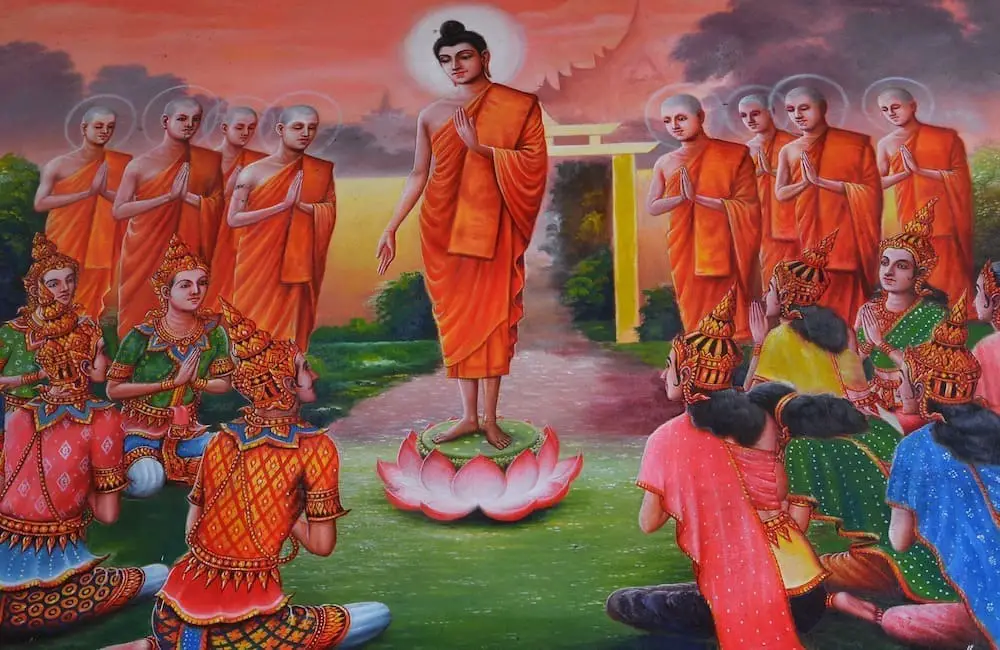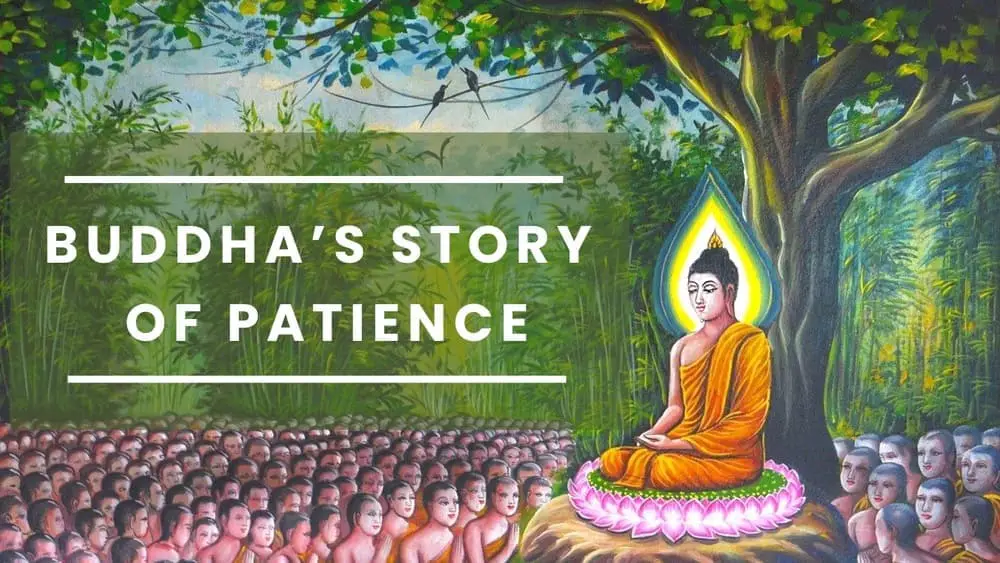We have a poor habit of acting quickly and wanting virtually everything in a flick of a second. We would rather constantly change our minds than practice patience. People tend to give up more often than make an effort. This tale is Buddha’s story on patience and will help you understand the importance of patience and achieve mental peace.
We also live a fast-paced life filled with numerous internal and external distractions. With no other direction than the one that brings us immediate satisfaction, we aimlessly roam from one place to another. The clamor of our inner voice must also be included because our worries tend to be present in everything. For example, we enjoy thinking, formulating theories, and getting lost in the mazes and tangled webs of our beliefs and judgments. Maybe the following Buddha’s story will have some answers to our questions.
Buddha’s Story on Patience
Buddha was staying in a village and had to address a large gathering of people from the community. As the community people assembled around Buddha, he stood in silence. He looked all around and then left without speaking a single word. Many people came together to listen to Buddha’s wisdom during the assembly. However, everyone was stunned to witness such behavior from Gautam Buddha. But no one questioned the Buddha. And after a few minutes, everyone left the meeting.

The religious assembly was held the next day again, but the number of people in the meeting significantly decreased on the second day. The number of people gathered to hear the Buddha decreased from 500 to 100. Buddha came to the assembly, stood in the same spot, looked around, and left without speaking again.
Read 80 quotes by Buddha about life and death.
Once again, people were surprised to see this.
However, no one questioned Buddha. The next day the religious assembly was organized again. And the number of participants had decreased significantly. This time there were only 50 people in the meeting. Again, Buddha came to the assembly, stood before everyone for a few minutes, looked at everyone, and left without uttering a single word. This time people began to get angry because they had left their work and responsibilities to hear the Buddha speak. Although angry, no one asked Buddha any questions.

The assembly was held the next day again, and only 30 people attended the meeting. Again Buddha came to the assembly, stood there for a few minutes, and left without speaking. However, this time people were furious and even started murmuring and insulting Buddha behind his back. Buddha, of course, did not answer any of their questions and left quietly.
The next day, the assembly was held, and the number of attendees was reduced to only 10. When the Buddha arrived at the assembly this time, he took a seat and started preaching. Buddha provided teachings and gave his knowledge of dhamma to those 10 people around him. These ten people then became Buddha’s disciples and spread the knowledge of dhamma in every direction of the world.
One day, one of his disciples finally asked the Buddha, “Lord, why did you leave the religious assembly every day without saying anything?”
Buddha said, “my dear, I was looking for really deserving people. There were 500 people on the first day, and only 100 were left on the second day. Most of the people came there just for fun. They did not come to listen to my teachings. I was looking for people who deserved my teachings, were curious, and could help spread my knowledge to others. For many days I went without speaking from the assembly because I wanted to select only a few people from among those 500. The people who deserved my sermon, those who had a quest for knowledge and patience to wait, were the ones that came every day. They proved that they truly wanted the knowledge. The others did not crave the knowledge or have the patience to wait and learn.”

If we look at our lives, we will find that those who have the curiosity to get something and the patience to wait – only can achieve something in life.
We all have goals in our life and desire to achieve them. But the only people that reach their destination, the ones that never stray from their journey, are the ones that have the patience to see it through. Those who do not have patience leave their journey in the middle and quit the pursuit. But those who have a strong desire to reach their destination and the patience to wait are the ones that will be successful in life.
Consider the Buddha’s story on patience next time you are freaking out about how long something is taking. Everything that is good in life will take time.
Want to learn more about Buddha’s life? Then check out my blog that talks about Buddha’s path to enlightenment!
FAQs: Buddha’s Story on Patience
Buddha emphasized that patience is rooted in our yearning for inner and outer harmony and in our belief in our capacity to embrace reality as it is. In the Buddhist philosophy, patience comprises three critical elements: showing gracious restraint, maintaining composure in the face of adversity, and embracing the truth.
Three classifications of tolerance include: forbearance towards adversaries, endurance in the face of difficulties along the journey, and perseverance amidst the vicissitudes of life.
Buddhist texts and traditions widely advocate for several significant virtues, motivations, and habits. The three fundamental roots of these virtues are non-attachment (araga), benevolence (advesa), and understanding (amoha).
